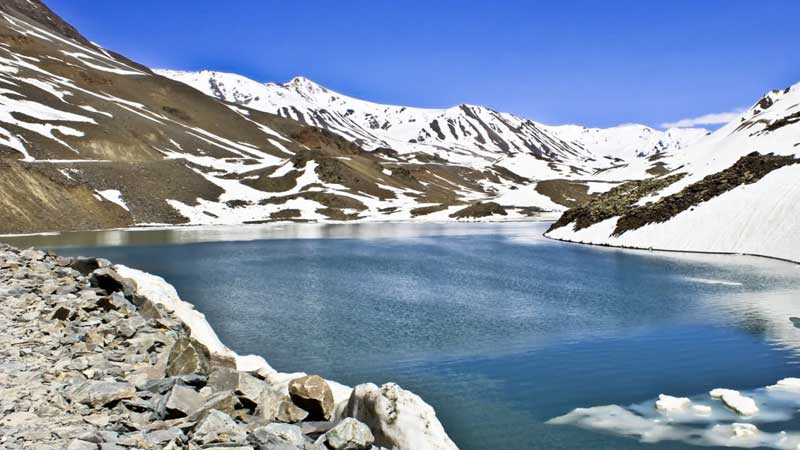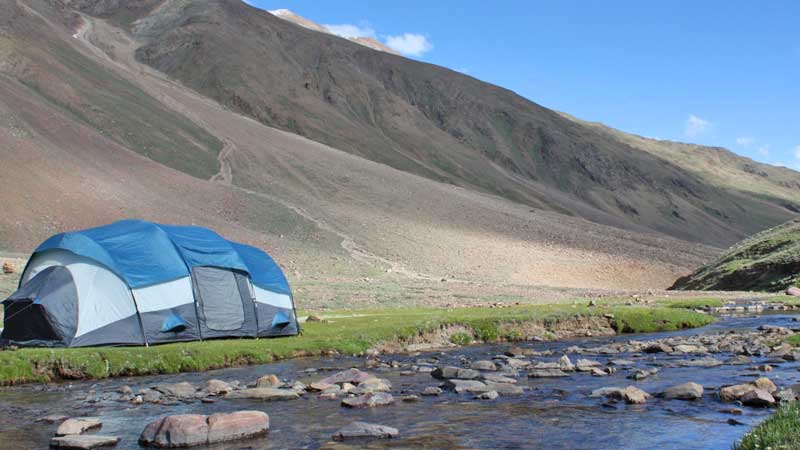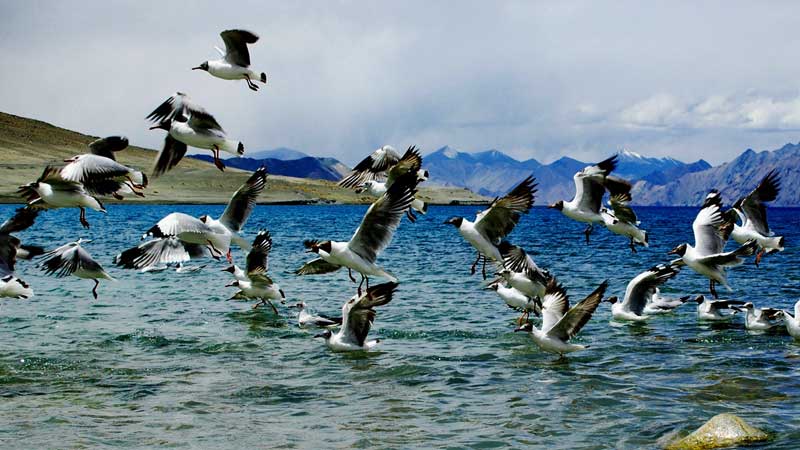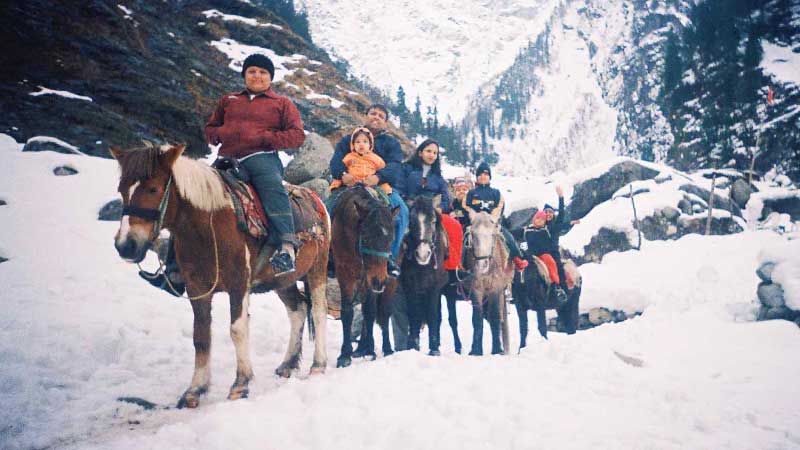
Nubra Valley Safari
09 Nights / 10 Days
Delhi - Leh - Panamic - Ansa - Panamic - Kyagar - Samstanling - Sumur - Deskit - Hunder - Deskit - Leh - Delhi
Overview
Nubra Valley Safari
Tour Itinerary
Day 1 Arrive Delhi
Begin Your tour
Arrive into Delhi.
Welcome to Vardhman's "Nubra Valley Safari Tour".
On arrival at Delhi, you will be met and transferred by
Vardhman's representative to your hotel. Relax for the
rest of the day.
Overnight: Hotel
Day 2 Delhi - Leh (01 hrs 15 mins by flight)
This morning after having breakfast, transfer to Delhi
airport to board the flight to Leh. On arrival at Leh,
transfer to Hotel for rest and relaxation. Later visit
Sanker Monastery , shanti Stupa & Leh Bazar.
Sankar Gompa: It is located at a distance of
approximately 3 km from the town of Leh. A subsidiary of
the Spituk Gompa, it belongs to the Gelukpa or the Yellow
Hat Sect. The monastery also serves as the official
residence of the Ladakh's head of Gelukpa Sect, known as
The Kushok Bakul. There are time restrictions for visiting
the Sankar Monastery of Leh Ladakh. You can also go either
between 7:00 am and 10:00 am, or between 5:00 pm and 7:00
pm. These restrictions have been placed because a few of
the monks, of the yellow-hat sect, attached to the
monastery reside here permanently.
Shanti Stupa: It is located on the hilltop at
Changspa. It can be reached quite easily from the Fort
Road. The Stupa was constructed by a Japanese Buddhist
organization, known as 'The Japanese for World Peace'. The
aim behind the construction of the stupa was to
commemorate 2500 years of Buddhism and to promote World
Peace. His Holiness, the Dalai Lama inaugurated the Shanti
Stupa in the year 1985. A magnificent white-domed
structure, the Shanti Stupa offers spectacular views of
the sunrise and sunset. The stupa looks best at night,
when it is beautifully illuminated with glittering lights.
A large number of tourists come to Ladakh every year to
visit this amazing stupa.
Overnight: Hotel
Day 3 Leh
Morning after having a leisurely breakfast, proceed for
the tour of Shey, Thiksey and Hemis Monastery.
Shey Gompa: It is situated on a hillock, at a
distance of approximately 15 km to the south of Leh town.
The monastery was erected on the instructions of King
Deldon Namgyal, in the memory of his late father, Singay
Namgyal. The main image inside the Shey Monastery is that
of Buddha Shalyamuni. It is a huge image of the seated
Buddha and is considered to be the biggest metal statue
and the second largest Buddha statue in the Ladakh region.
Copper sheets, gilded with gold, make up this amazing
Buddha statue. The image also contains sacrificial
offerings such as grain, jewels, holy signs and mantras
inside it.
Hemis Monastery: It holds the distinction of being
the biggest as well as the wealthiest monastery of Ladakh.
It dates back to the year 1630 and was founded by the
first incarnation of Stagsang Raspa Nawang Gyatso. Hemis
Monastery is positioned inside a gorge, at a distance of
approximately 47 km from Leh. Belonging to the Dugpa
Order, it stands on the western bank of the Indus River.
The monastery also boasts of a very rich collection of
ancient relics.The Hemis Monastery also serves as the
venue of an annual festival, known as the Hemis Festival.
This festival is celebrated as a commemoration of the
birth anniversary of Guru Padmasambhav.The Thanka is the
sacred appliqué-work tapestry wrought with pearls, which
depicts Guru Padmasambhava. And not to be forgotten is a
sacred mask dance that is performed at the monastery every
year. The dance takes place on 9th and 10th day of the
fifth month of the Tibetan calendar.
Thiksey Gompa: It is situated at a distance of
approximately 18 km from the town of Leh. One of the most
beautiful monasteries of Ladakh, it belongs to the Gelukpa
Order of Buddhism. Sherab Zangpo of Stod got the Thikse
Monastery built for the first time, at Stakmo. However,
later Spon Paldan Sherab, the nephew of Sherab Zangpo,
reconstructed the monastery in the year 1430 AD. The new
monastery was sited on a hilltop, to the north of Indus
River.It houses a temple, known as Lakhang Nyerma. This
temple, built by Rinchen Zangpo, the Translator, is
dedicated to Goddess Dorje Chenmo. A huge temple in its
time, today it stands mostly in ruins. Apart from this
temple, there are a number of other sacred shrines inside
the monastery complex. The monastery also has a rich
collection of numerous valuable artifacts and ancient
relics.
Overnight: Hotel
Day 4 Leh - Panamic (3.2 kms)
This morning after breakfast, drive to Panamic via Gangles
village , then crossing over Khardong La. Enter Nubra
valley and then along the Nubra river camp at Panamic.
Overnight: Camp
Day 5 Panamic - Ansa - Panamic (14 km drive / 1 hrs walk)
Morning after having breakfast, drive to Ansa monastery on
a hilltop across the Nubra river in the middle of the
valley, drive for 7 km and then walk for about half-hour
to arrive.
Visit Panamic village considered to be
the largest camping ground for caravans in the Nubra
valley.
Visit the hot spring of Panamic, which is known for curing
skin disease and rheumatism. Enjoy 2-3 hr camel ride on
double humped Bactrian camel at Panamic.
Overnight: Camp
Day 6 Panamic - Kyagar - Samstanling - Sumur - Deskit
This morning after a leisurely breakfast, drive to Deskit
enroute visiting Samstanling monastery, old castle and
temple of Kyagar. Also visit Sumur monastery which is 265
years old. Driving for another 30 km takes us to Khalsar
Bridge. Deskit can be approached by driving parallel to
the Shyok river for 20 km.
Sumur and Samstanling Gompa: Sumur is home to the
Nubbra valley's most important monastery, Samstem Ling
Gompa, forty minutes' walk behind the village. Built in
1841, the Gompa is home to over a hundred Gelugpa monks,
aged between seven and seventy. Action centres on the
large Du-khang, which is hung with Thangkas and dominated
by a huge gilded statue of Shakyamuni, accompanied by
Maitreya and the protector deity Mahakala. Across the
courtyard, the long, low Gon-Khang is guarded by statues
of fierce protector deities strung with wide-eyed skulls
and figurines of the 84 Mahasiddhas, venerated Tantric
saints. Samstem ling is linked to the Gompa of Rhizdong in
the Indus valley west of Leh.
Overnight: Camp
Day 7 Deskit - Hunder - Deskit
Morning after breakfast, drive to Hunder & visit the
Monastery. Later explore the town of Diskit , headquarter
of Nubra.
Deskit: It is the headquarters of the present
administrative setup of the Nubra valley it is famous for
its 515 years old Buddhist monastery, situated on the top
of a hill, facing the entire valley; the breathtaking view
from the top of almost the entire valley is a lifetime
experience, visit Hunder and its temple at a distance of 5
km from Deskit.
Overnight: Camp
Day 8 Deskit - Leh (118 kms)
Leave Deskit after breakfast. Arrive Leh in the evening.
Rest of the day on your own.
Overnight: Hotel
Day 9 Leh
After having breakfast, morning tour of Phyang, Spituk and
Stok Museum.
Phyang: It is situated on the Leh - Kargil Highway
24 kms. west of Leh. The place has got a gompa that
belongs to the 15th Century. Built by king Tashi Namgyal,
the gompa subscribes to Kagyupa Order. The gompa has got
tall walled building and houses 50 Prigungpa Lamas. The
Dukhang has got 3 silver chortens out of which one has got
seven eyed coloured Dezi stone. This stone is believed to
be highly auspicious and was brought from Tibet by a
former Head Lama. Gonkhang enshrines a furious veiled
protector Deoty and also has a great collection of weapons
and armours used during the Mongolian invasion of 14th
Century. Phyang is also well-known for its annual festival
which is the second largest festival in Ladakh. Phyang
Tsedup festival formely used to be held during the
winters, but recently it has been rescheduled with the
tourist season and is celebrated during the month of July
- August. During the festival, one can witness the Chaam
dances and exposition of Giant 10 mtrs. broacade
Thangka.
Stok Palace (Entry Fee: Rs 25, Timings 8 a.m. -
7p.m.): The Stok Palace is located on a glacial deposit of
pebbles and overlooks fields of barley grown on terraces
on the mountains. Standing four storeys tall, the Stok
Palace was the official residence of the royal family of
Ladakh and was constructed in 1814 by Ladakh's last ruler.
The museum at the Stok Palace has an intriguing collection
of Buddhist art, weapons, jewelry and artifacts, including
thangkas painted with colors derived from crushed precious
stones. Also on display are the ceremonial headdresses or
'peraks' of the erstwhile rulers of Ladakh. These
headdresses are decorated with turquoise, lapis lazuli and
coral and gold, making them an exotic sight.
Spituk Monastery: The Spituk Gompa is perched on a
high hill overlooking the Indus river about 18 Km from
Leh. Rinchen Zangpo the Great Translator who helped spread
Buddhism in Ladakh named the monastery. (Spituk means
exemplary). The Spituk monastery is known for its
collection of Buddhist artifacts and for the Spituk
festival held from the 17th to 19th days of the 11th month
of the Buddhist calendar. Further up the hill is a Mahakal
Temple, where a fearsome image of Vajrabhairava is
unveiled once a year at its annual festival.
Overnight: Hotel
Day 10 Leh -Delhi
After breakfast, transfer to Leh airport to board flight
to Delhi. On arrival at Delhi Domestic airport, transfer
to international airport (through shuttle service
available free of cost at the airport) to board the flight
for your onward journey with sweet and unforgettable
memories of "Nubra Valley Safari Tour" escorted by
Vardhman Vacations.
END OF OUR SERVICES
Make Your Trip Now
Get More Packages
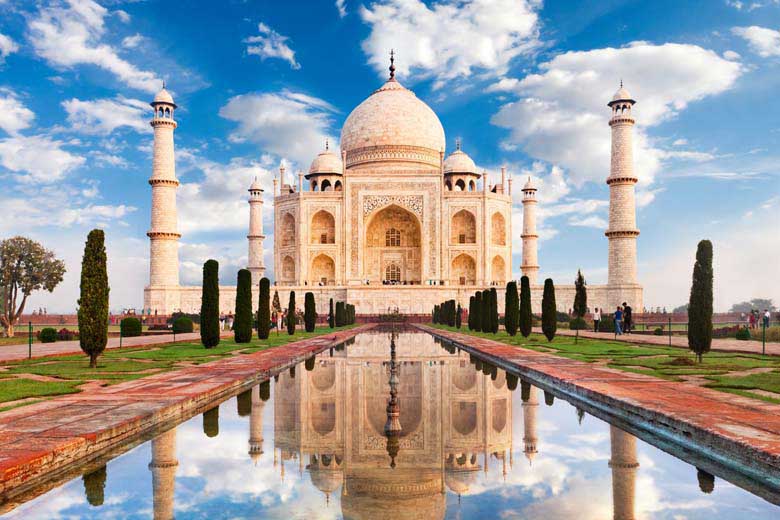
Golden Triangle Vacation Tour
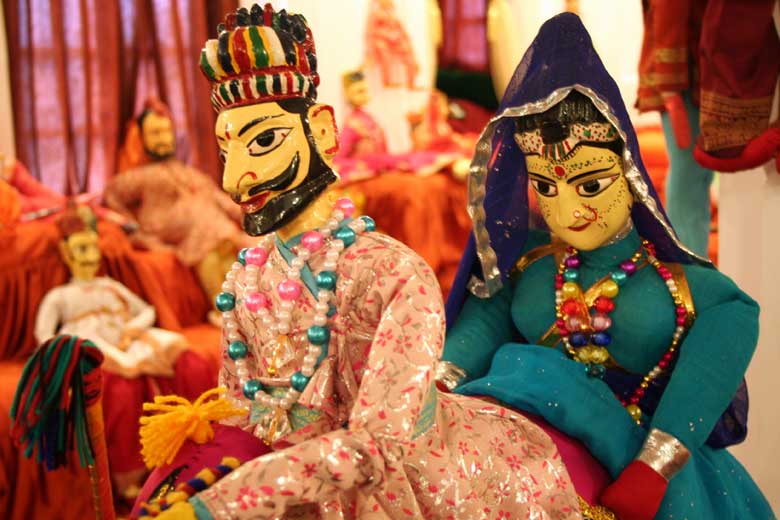
Rajasthan colorful Tour
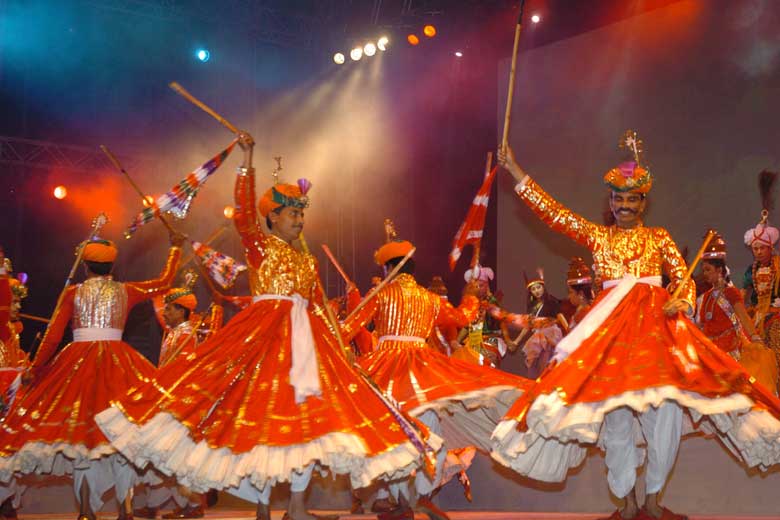
Rajasthan Cultural Tour
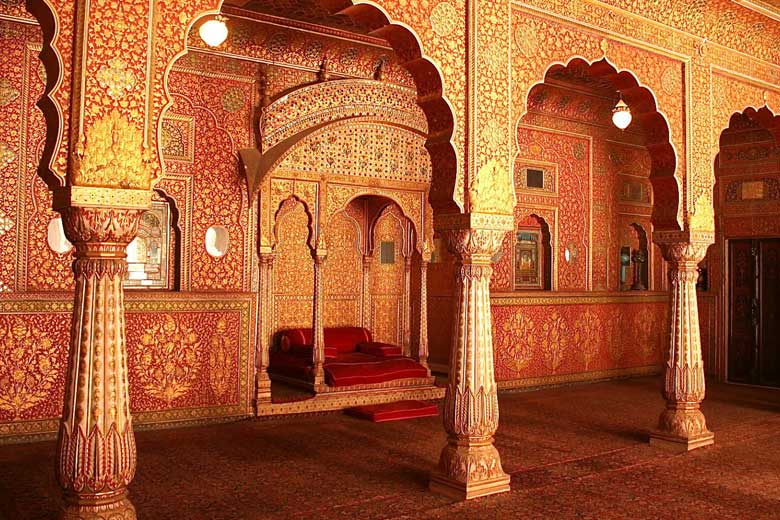
Rajasthan Fort & Palace Tour
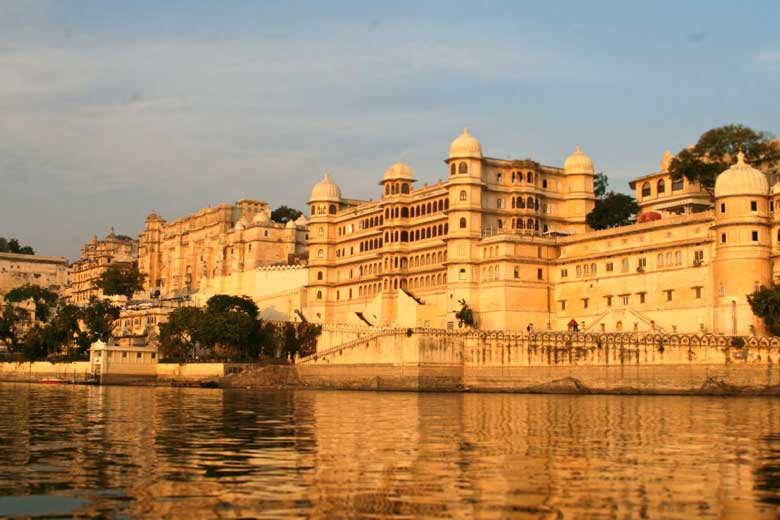
Rajasthan Heritage Tour
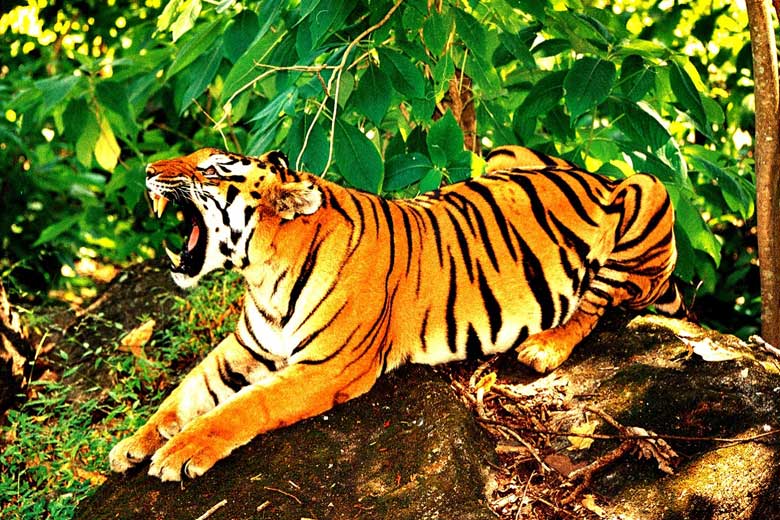
Rajasthan Wildlife Tour
MOST POPULAR PACKAGES

6 Nights / 7 Days
Golden Triangle Vacation Tour
India’s golden triangle is a tourist circuit which includes: Delhi, Agra (including the Taj Mahal), and Jaipur. These trips usually 7 days and do the trip as a circuit starting and ending in Delhi.
View Package
16 Nights / 17 Days
Rajasthan colorful Tour
Coloruful Rajasthan Tour is one of the most popular circuit of India. This tour package accommodates you to endure Rajasthan in all its different colors.
View Package
10 Nights / 11 Days
Rajasthan Cultural Tour
The Rajasthan state represents an unusual diversity in all its forms - people, culture, customs, costumes, cuisine, dialects and music and haveli's.
View Package
12 Nights / 13 Days
Rajasthan Fort & Palace Tour
Rajasthan is famous all over the world for its stunning forts and palaces that have been gloriously standing since decades in this princely state.
View Package
11 Nights / 12 Days
Rajasthan Heritage Tour
Rajasthan known as the "land of kings"provides some marvelous marks from the history in the form of its forts, palaces, mansions and haveli's.
View Package
06 Nights / 07 Days
Rajasthan Wildlife Tour
The name Rajasthan has a habit of invoking the images of sun-bathed sand dunes of the Thar Desert, the rustic turban and mustache of Rajasthani men and women’s ghagra.
View Package
 Gujarat Toursim
Gujarat Toursim
 IATO -
Indian Association of Tour Operators
IATO -
Indian Association of Tour Operators
 +91-9811175768
+91-9811175768